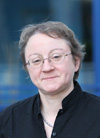Editorial
Dear Readers,
One of these future events is directly connected to the topics raised in the feature article, as the members of Research Field 3 Norms and Social Order(s) have taken on the task of organizing the next annual conference of the URPP on the topic of “Travelling Norms and the Politics of Contention.” It will take place from October 25 to October 26, 2013. The conference mirrors the larger research program on “circulating norms,” which is delineated and discussed in an interview with David Chiavacci, Bettina Dennerlein, and Dorothea Lüddeckens.
This issue also includes reports and reflections on the rich spectrum of the research activities that were going on in our three research fields in the past year. You will find reports on the aims and issues of the 2012 annual conference of the URPP “Concepts of Religion between Asia and Europe,” and on the topics and discussions of an international workshop organized by Research Field 2 on “Biographies Afield in Asia and Europe.” The latter workshop focused on biographies and (auto-) biographical testimonies of individuals whose lives are marked by trans-cultural movements and experiences between Asia and Europe in historical contexts from the early modern period up to the 20th century. Sourav Kargupta (Kolkatta), who participated at the post-graduate workshop on “Asian Postmodernities and their Legacies,” shares his thoughts on deconstructivist aporias and perspectives on “post-modernity,” giving a lively idea of the intense interdisciplinary discussions during the event. Incited by our former Academic Director, Andrea Riemenschnitter, professor of Chinese studies, it was also the first workshop exclusively designed for postgraduates and set a successful example to be pursued in the future.
In supporting junior researchers on the doctoral and postdoctoral level for more than six years and in running an interdisciplinary doctoral program since 2009, the URPP Asia and Europe has successfully supported several generations of graduate students in conducting research within an interdisciplinary framework. What ways of advancing are opening up for our students when their scholarships have come to an end? Roman Benz updates us on three alumni and gives us insights into their views on their achievements and future perspectives.
Finally, I like to express our thanks to Jorrit Britschgi, Philipp Hetmanczyk, Thomas Hüllein, Justyna Jaguścik, Sourav Kargupta, Shalini Randeria, Ralph Weber, Sebastian Zylinski, and Roman Benz for their valuable contributions to this volume.
Prof. Dr. Angelika Malinar
Academic Director
(Asia & Europe Bulletin, 2/2013, p. 3)
